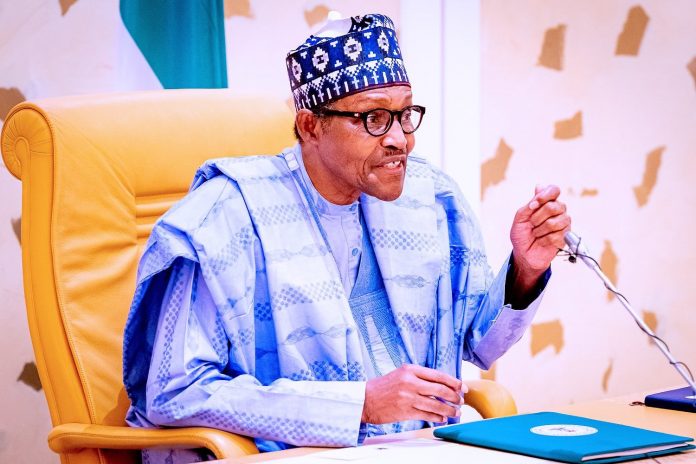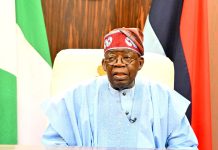The Socio-Economic Rights and Accountability Project (SERAP) has filed a lawsuit seeking “a perpetual injunction to prevent President Muhammadu Buhari and Minister of Communication and Digital Economy, Isa Pantami, from unlawfully shutting down telecommunication networks in any part of the country.”
SERAP is asking the Federal High Court in Abuja to “determine whether the Buhari administration’s shutdown of telecommunication networks in any part of Nigeria is unlawful, and a violation of the rights of access to correspondence, freedom of expression, information, and the press,” according to the suit number FHC/ABJ/CS/1323/2021.
“Determine if the shutdown of telecommunication networks in any region of the country is inconsistent with the criteria of legality, proportionality, and necessity, as well as the rights of access to correspondence, freedom of speech, information, and the press,” SERAP also asks the court.
Read Also: APC group commends Buni-led committee for excellent performance, says party’s glory restored
The case has been assigned to Honourable Justice Ahmed Mohammed of Court 4, and a hearing date has been set for January 11, 2022.
The Nigerian Communications Commission is a defendant in the case (NCC).
“Large-scale communication network shutdowns constitute a form of collective punishment,” according to SERAP. Shutdowns have a chilling impact on participatory democracy, which depends on an engaged and informed population capable of engaging with a variety of perspectives.”
“The Buhari government has constitutional and international legal obligations to provide Internet access for all, as Internet access is intrinsically related to the exercise of freedom of expression and information,” according to SERAP.
“Access to information, the ability to exercise the right to freedom of expression, and the involvement that the internet and telecommunication networks bring to all sectors of society are important for a truly democratic society,” according to SERAP.
“The rights to freedom of expression and information may be limited only in specified circumstances,” according to SERAP. Restrictions on these rights must be legal, proportionate, and required for the preservation of others’ rights or reputations, as well as national security, public order, public health, and morals.”
Read Also: Zulum asks military to wake up as he visits the Maiduguri Estate Attack
Prof. Umar Danbatta, NCC EVC, has been reappointed as Data Commissioner.
NCC’s Executive Vice-Chairman and Chief Executive Officer, Prof. Umar Danbatta
“While the authorities have a legal responsibility to safeguard, ensure, and secure the rights to life and property,” SERAP claims, “any such responsibility should be discharged in accordance with constitutional and international human rights norms.”
“The suspension of internet and telecommunication networks in Zamfara and Katsina states is especially heinous, and reveals a troubling trend, especially considering Nigeria’s rising repression and restriction of civic space,” SERAP warned. Shutdowns should never become commonplace in the United States.”
“Internet and telecommunication shutdowns constitute to intrinsically excessive interference with the rights to freedom of expression and information,” according to the claim filed on behalf of SERAP by its lawyers Kolawole Oluwadare and Kehinde Oyewumi. Shutdowns must be shown to be necessary in order to fulfill their declared purpose, which they frequently imperil.”
“Four special mandates on freedom of expression emphasized in their 2011 Joint Declaration on Freedom of Expression and the Internet that ‘cutting off access to the Internet, or parts of the Internet, for whole populations or segments of the public can never be justified, including on grounds of public order or national security.'”
Read Also: NYSC is here to stay, FG tells critics
“The African Commission on Human and Peoples’ Rights affirmed the principle of non-interference with internet and telecommunication networks, emphasizing that States, including Nigeria, “shall not engage in or condone any disruption of access to the internet and other digital technologies for segments of the public or an entire population.”
“The United Nations Human Rights Council condemned’measures to purposefully impede or impair access to or transmission of information online in breach of international human rights law’ in June 2016. The Council urged all countries, including Nigeria, to refrain from and stop taking such actions.”
“Section 39 of the Nigerian Constitution, 1999 [as amended], Article 19 of the International Covenant on Civil and Political Rights, and Article 9 of the African Charter on Human and Peoples’ Rights, all of which Nigeria has ratified, protect the rights to freedom of expression and access to information.”
“These rights must be safeguarded online in the same way that they are safeguarded offline.” The freedom to use the Internet is a basic human right. Online and offline, access to the internet is also required for the exercise and enjoyment of other human rights.”
“Shutdowns have a wide range of negative consequences for human rights, economic activity, public safety, and emergency services, all of which outweigh the ostensible benefits.” Any internet or telecommunications shutdown has the potential to effect millions of people, with those on the outskirts of society being the hardest hit.”
“The unjustified suspension of internet and communications networks in Zamfara and Katsina states is incompatible with the standards of necessity and proportionality.” The suspension is a type of collective punishment meted out to Nigerians in certain states.”
Read Also: ASUU threatened to go on strike over low pay Remuneration in Nasarawa
“Any restrictions should be based on the goal of making the right easier to exercise, rather than imposing needless and unreasonable restrictions.” Restrictions must not be discriminatory, must not undermine the nature of the right, and must not be intended to cool the market. Shutdowns of the internet and telecommunications fail to meet all of these criteria.”
The NCC recently ordered telecom companies to stop all telecommunications networks in a number of states, including Zamfara State and at least 13 local government areas in Katsina State, ostensibly to combat “banditry” and terrorism.
Join Television Nigerian Whatsapp Now
Join Television Nigerian Facebook Now
Join Television Nigerian Twitter Now
Join Television Nigerian YouTUbe Now





